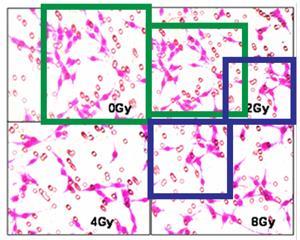James Parry argues that safeguarding the integrity and quality of research is best achieved through cultural and not regulatory means
The quality of research has come under increasing scrutiny in recent years, through mechanisms such as the Research Assessment Exercise and coverage in the mainstream and academic media. At the same time, studies have gathered evidence that inappropriate practices are more common than many would like to think.
These concerns are, of course, understandable. When it does occur, research misconduct damages the scientific record and betrays the public’s trust. Dishonest research wastes public funds and jeopardises
the careers of researchers and the reputations of institutions and journals. In the most serious cases, misconduct risks harm to research participants, patients and the public.
In the midst of all this attention, we must first maintain perspective. The UK has a well-earned reputation for excellent and innovative research and has high-calibre researchers who deliver robust results; the UK is not rife with fraud. However, we must also acknowledge that we cannot dismiss these issues.
Questionable research
It may be argued that research practice – safe, accurate, honest, ethical and legal science – should be self-evident; that we should rely on the incentives that make research self-correcting. This might be acceptable if you take a very long view, but in most other sectors, professional responsibility means taking steps to minimise predictable harm.
Replication of experiments and peer review do play an important part in discovering fraud but there is evidence these mechanisms are not as strong as they should be. Most research is never directly replicated and misconduct may be detected only long after publication – and then by readers rather than colleagues, supervisors, editors or reviewers. And colleagues can be afraid to speak out. Pressures, whether internal or external, can drive researchers to cut corners, or worse, and it is an unfortunate truth that there is a growing body of evidence suggesting research misconduct is not rare. A 2009 meta-analysis1 reported that just under 2% of scientists admitted to have fabricated, falsified or modified data or results at least once. Just over a third admitted to ‘questionable research practices’. What we need is a more systematic and visible effort to promote integrity.
Appropriate measures
Structures for addressing research misconduct have been debated for decades. Some countries take a regulatory approach, while others, such as the UK, have a policy of minimising regulation and relying more on professional practice. In this spirit, the UK Research Integrity Office (UKRIO) was set up to support good research practice and assist the prevention and investigation of questionable practices and misconduct. UKRIO is the only body in this country that offers dedicated support to the research community and the public on these issues.
The UK does have regulators, but these are exceptions rather than the rule. So should the UK also have a statutory regulator for all research? Research in the UK covers a wide variety of organisations, subjects and funding sources. It would be extremely challenging to establish a body that could regulate all aspects of research and do so without creating additional bureaucracy and delays. Most reviews of research governance have not called for further regulation. And nor have researchers: a consensus statement produced at a recent meeting hosted by the British Medical Journal, asked not for regulation but for employers and funders to do more.2 Whether or not a field of research is governed by statute, employers are liable for the actions of their researchers. It is up to employers to investigate concerns, and funders of research have a responsibility to see that institutions do this well.
Effecting change through non-regulatory means – through the requirements of research funders or training and guidance from advisory bodies – is possible. In our experience, employers do have the power to address poor practice and misconduct when they occur, but there have been questions about their willingness and expertise. UKRIO was set up to help correct this situation and support whistleblowers with concerns about research.
The support offered by UKRIO complements regulation with guidance that is appropriate, practical and proportionate. Such a service is not a substitute for regulatory or contractual standards but our workload shows we meet a need. Many research organisations, including over 50 universities, use our published guidance.3
UK science is by no means a disaster zone, but there is no room for complacency. The UK’s mechanisms for demonstrating good research practice are complex and not especially transparent: justice may be done but is not often seen to be done. More consistent and complete structures would support good professional practice and encourage research of the highest quality and ethical standards. Confusion about managing research misconduct is risky for the UK, which could and should be an example to the rest of the world.
James Parry is the chief executive of the UK Research Integrity Office
References
- D Fanelli, PLoS One, 2009, 4, e5738 (DOI: 10.1371/journal.pone.0005738)
- A consensus statement on research misconduct in the UK, Br. Med. J., 2012, 344, e1111 (DOI: 10.1136/bmj.e1111)
- Code of practice for research: promoting good practice and preventing misconduct, 2009, UK Research Integrity Office (www.ukrio.org/publications)












No comments yet